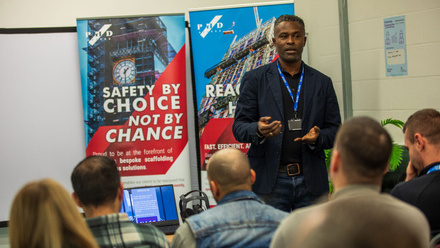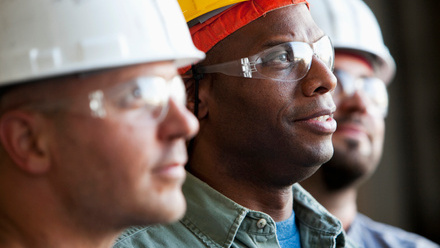More than a third of London’s home owners would rather hire a female builder as opposed to a male builder, according to new research by the Federation of Master Builders (FMB).
Key results from the FMB’s research into opinions on female builders and tradespeople include:
-
More than one third (38%) of home owners in London would feel more positive about hiring a female builder or tradesperson to complete a task in their home, as opposed to a male builder or tradesperson;
-
Of those Londoners who felt more positive about hiring a female builder, the reasons were as follows:
-
61% think female tradespeople might be more respectful of their home;
-
50% would like to support more women working in non-traditional job roles;
-
42% think female tradespeople might be more trustworthy;
-
39% might feel more at ease with a female tradesperson;
-
34% think female tradespeople might be friendlier;
-
33% think women often have better attention to detail than men;
-
26% prefer the company of women;
-
23% relate better to other women;
-
16% think it would be a novelty and a welcome change to hire a female builder.
-
Despite feeling more positive about hiring a female tradesperson, 33% fewer Londoners would encourage their daughter to pursue a career in construction than their sons;
-
Over half (53%) of the general public in London are ‘gender blind’ when choosing their builder or tradesperson and wouldn’t care whether they were a man or a woman.
Commenting on the research, Barry Mortimer, Director of FMB London, said: “There’s a huge demand among home owners in London for more female tradespeople. This new research shows that well over one third of Londoners would feel more positive about hiring a female builder or tradesperson to complete a task in their home, as opposed to a male builder or tradesperson. By way of comparison, just nine per cent of Londoners would feel less positive about hiring a female tradesperson. There are many reasons for this attitude with nearly two thirds of people maintaining that females might be more respectful of their home and over a third saying they might feel more at ease with a woman. Given that today is International Women’s Day 2018, we want to encourage young women to seriously consider embarking upon a career in construction.”
Mortimer concluded: “Unfortunately we are still battling wholly outdated attitudes surrounding women working as tradespeople. Despite people feeling more positive about hiring a female tradesperson, a third fewer people would show support for their daughter pursuing a career in construction compared to their sons. We’re facing an acute skills crisis in the construction industry, with record high skills shortages reported by small construction firms in the final three months of 2017. Encouraging more women into construction would therefore not only help meet the pent up demand for more women working as tradespeople in the capital, it would also help close the skills gap. Just two percent of the UK’s tradespeople are women and in this day and age, that’s shockingly low.”
Joanna Palinski who runs JP Project Management, said: “I receive a very positive reaction from clients as a female running a construction firm. Many of our clients have said that, as a women, I actually have better attention to detail and my firm is very solutions focused. I would wholly recommend if they are interested, other women should consider starting a career in construction, it is a challenging but very rewarding sector. To women who are keen to start a career in construction, I would suggest getting as much training as you can. There is a gap in the market and people are keen to have more female construction workers.”
About the research
The FMB’s research into consumer confidence in builders in the UK was carried out in the week commencing 22 February 2018. The survey was carried out by the research company OnePoll and the results are based on responses from 2,000 home owners across the UK. The gender breakdown of respondents was 49.8% female and 50.2% male.




